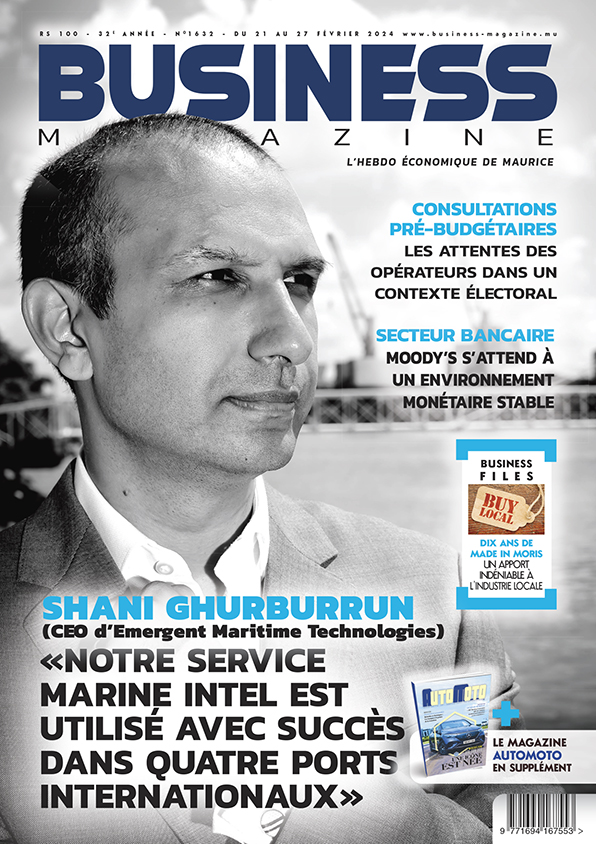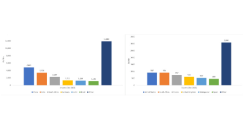Financial Services Sector: A promising future of growth and prosperity
Share

ENTERING 2024, Mauritius’ financial services sector is at a crucial juncture, positioned to significantly impact the country’s economic growth. In recent years, the sector has shown robust performance, with the financial sector contributing 13.7% to the GDP in 2023, reflecting a growth rate of 5.0% from the previous year. This sector’s performance is indicative of its central role within the Mauritian economy and its potential as a driver for further Foreign Direct Investment (FDI) in the country.
Mauritius has navigated the post-Covid-19 landscape effectively, with strategic measures in place to bolster the financial services sector and promote the jurisdiction as a safe platform for investors. Being removed from the FATF blacklist has also played a critical role in restoring confidence and enhancing the country’s appeal as a secure and transparent investment destination. The financial services sector’s contribution, coupled with an increase in GDP growth to 7.8% in 2022 from earlier forecasts, underscores the economy’s resilience and the sector’s potential for sustained growth.
In the last three years, the financial services sector in Mauritius has demonstrated remarkable adaptability and growth, rebounding strongly from the global downturn caused by the Covid-19 pandemic. This sector, encompassing both banking and non-banking entities, has consistently contributed significantly to the country’s GDP, highlighting its role as a cornerstone of the Mauritian economy.
LEVERAGING OUR STRENGTHS
The Global Business Industry (GBI) continues to play a pivotal role in Mauritius’s emergence as a regional financial hub, directly enhancing the Financial Institutions (FI) sector and magnetizing FDI. As a matter of fact the country witnessed an uptick in FDI, with inflows reaching USD 253 million in 2021 and ever increasing since, signalling its escalating allure to investors, buoyed by strategic international partnerships and an extensive network of double taxation avoidance treaties.
Despite the challenges posed by the pandemic, the economic landscape of Mauritius showcased notable resilience and adaptability. The focus on economic diversification has been a key driver behind the country’s robust recovery trajectory, underpinned by a conducive legal and regulatory framework appealing to business and investment.
Positioning itself as a bridge for investment into Africa, Mauritius leverages its strategic location and diplomatic ties to bolster trade with the continent. The creation of Special Economic Zones (SEZs) in collaboration with African countries highlights its ambition towards fostering regional economic integration and development. This strategy, coupled with an open economic policy and significant investments in sectors such as real estate and education, demonstrates the role of the Mauritius International Financial Centre (IFC) as a critical conduit for channelling investment into Africa, heralding a future of continued growth and regional prosperity.
EMBRACING DIGITAL TRANSFORMATION
The integration of RuPay into the Mauritius’s financial landscape marks a significant milestone in the country’s journey towards digital transformation. This development, facilitated by a strategic collaboration between the Bank of Mauritius and its Indian counterpart, enables seamless and secure transactions between the two nations. With RuPay, Mauritius not only enhances financial inclusivity for its residents but also positions itself as a pioneer in adopting digital payment solutions in the region. The launch event, graced by the Prime Ministers of Mauritius and India, underscores the importance of this initiative in fostering closer financial cooperation and digital connectivity between the two countries.
The implementation of RuPay in Mauritius, as facilitated by major financial institutions, represents a leap forward in the adoption of digital payment systems. By enabling the issuance of RuPay cards and the accept ance of UPI QR transactions, Mauritius offers its residents and visitors alike a more versatile and secure payment mechanism. This move not only enriches the travel experience between Mauritius and India, but also sets a new standard for cross-border financial transactions, reinforcing Mauritius’s commitment to digital innovation and financial inclusion.
This initiative showcases Mauritius’s strategic approach towards integrating advanced digital payment systems, like RuPay, within its financial ecosystem, signifying a broader embrace of technological innovations that promise to reshape the banking and financial services sector. Mauritius is on a strategic path towards a digital economy, aiming to solidify its status as a premier financial hub.
A CONDUCIVE INVESTMENT ENVIRONMENT
This transition faces challenges, notably in universal digital adoption and enhancing the Mauritius Stock Exchange’s appeal to attract a broader spectrum of global investors, including major banks, asset managers, and family offices. Key initiatives include improving digital literacy, expanding infrastructure, and reforming regulatory frameworks to foster an investor-friendly environment while adhering to international compliance standards.
The focus is on balancing regulatory rigour with commercial growth, ensuring the financial system’s integrity and stability to boost investor confidence. These efforts, coupled with strategic international collaborations, are designed to spur innovation, attract FDI, and drive economic diversification, reinforcing the country’s position as a dynamic and inclusive financial centre on the global stage.
Despite these challenges, the future of our financial services sector shines brightly. The integration of Rupay and the openness to blockchain and fintech innovations are significant positives. The regulatory sandbox approach towards blockchain technology is particularly noteworthy, offering a controlled environment for crypto and blockchain exchanges to operate, paving the way for a more inclusive financial ecosystem.
The strategic alignment between the global business industry and the domestic economy is expected to catalyse FDI, with the financial services sector playing a pivotal role in this transformation. This alignment, coupled with Mauritius’s international reputation as a reliable financial centre, sets the stage for a year of optimism and progress.
RESILIENCE AND INNOVATION
Our financial services sector is on the brink of significant change, driven by technological advancements, strategic global positioning, and a strong regulatory environment. The recovery from the economic impacts of the Covid-19 pandemic and moving past the FATF blacklist have been key factors in its growth, improving its contribution to the national economy and competitiveness on the world stage.
As Mauritius continues to harness the potential of the global business industry and navigate the challenges of digital transformation, the financial services sector emerges as a beacon of resilience and innovation. With a clear vision and strategic initiatives in place, the country is well on its way to reinforcing its status as a leading financial hub, promising a future of prosperity and growth for the financial services sector in 2024 and beyond.

















